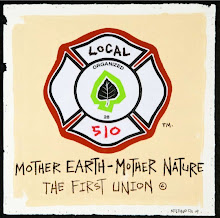Third Culture Kids
The term “third culture kids” was first coined by Ruth Useem in
the 1960’s. She used it to refer to children who lived in a culture
different from the one they were born into or the one their parents came
from. Their first culture is their birth culture, or parents culture.
The second culture is the culture they have moved to. The third culture
is the one they create when they move to the new country. They tend to
be more comfortable mixing with children who are also third culture kids
than they do mixing with children from either their original culture or
the culture in their new country. David Pollock, author of “Third
Culture Kids”, writes:
Although they do not necessarily relate to their peer group in their home country there are many positives to growing up as a third culture kid. As adults, they tend to feel they can tackle any problem and adapt to any group. They usually maintain a strong interest in international issues and generally are comfortable making change in their lives when things are not going well rather than continuing with negative patterns and more than two thirds actively participate in their local communities on a voluntary basis.
While they may have a deep understanding of the country they live in and a broader understanding of the world as a whole than non-TCK’s, they may have less understanding of the culture, geography and history of their home country. British children will experience Nyepi and Galungan in Bali but are unlikely to experience Guy Fawkes in the way their peers back in the UK would do. If it is important for your children to learn about the history and culture of your home country you may have to focus on this yourself at home rather than having your children’s school address this need.
Recommended Reading: Third Culture Kids by David Pollock and Ruth van Reken
*I discovered this article on LivingInBali
[A third culture kid is] a person who has spent a significant part of his or her developmental years outside the parents’ culture. The TCK builds relationships to all of the cultures, while not having full ownership of any. Although elements from each culture are assimilated into the TCK’s life experience, the sense of belonging is in relationship to others of a similar background.
Adaptability
Third culture kids (TCK’s) generally find it easier to adapt to new cultures and will be more likely to move often as adults. If they return to their home country they may experience reverse culture shock as they pine for the foreign country they have left behind. They are more likely to choose careers that lead them to live overseas or travel often, but may have more difficulty adjusting to long lasting relationships as they have been used to frequently saying goodbye to friends as children. Studies of adult TCK’s who have returned to their home country show that 90% of them feel “out of synch” with their peers who have never lived overseas.Although they do not necessarily relate to their peer group in their home country there are many positives to growing up as a third culture kid. As adults, they tend to feel they can tackle any problem and adapt to any group. They usually maintain a strong interest in international issues and generally are comfortable making change in their lives when things are not going well rather than continuing with negative patterns and more than two thirds actively participate in their local communities on a voluntary basis.
Divided Loyalties
One thing that many TCK’s struggle with is the issue of divided loyalties. If their host country has a different approach to politics, religion or world issues than their home country, they can find it confusing when trying to deal with the different points of view. They are likely to have friends from a wide range of countries and some of those children’s home countries may have conflicts with other children’s home countries. All of this can be confusing for them as they try to understand the deeper issues related to cross cultural conflict. Talking to your children when these issues arise, especially if there are specific tensions in the world related to politics or religion, can help them to come to terms with understanding that the world is more grey than black and white.Three Dimensional Reality of the World
TCK’s tend to have broader experience of the world than children who have not lived outside their home country. They may have holidays that include trekking on elephants, observing orangutans in the jungle and sleeping in longhouses. They are likely to be comfortable with long haul travel on planes and have an intimate understanding of the how the mini bar works in the hotel room! While most children in Western countries have read about volcanoes in their text books, Bali TCK’s are more likely to have climbed one and have seen them each day on their journey to school. All of their experiences give them a richer, deeper understanding of the world. This vivid reality can also be difficult for them to come to terms with. Seeing poverty firsthand can affect them emotionally. It can help to get them involved in giving back to their local community in some way, developing an understanding that we all have a role to play in eliminating poverty and making meaningful contributions to society.While they may have a deep understanding of the country they live in and a broader understanding of the world as a whole than non-TCK’s, they may have less understanding of the culture, geography and history of their home country. British children will experience Nyepi and Galungan in Bali but are unlikely to experience Guy Fawkes in the way their peers back in the UK would do. If it is important for your children to learn about the history and culture of your home country you may have to focus on this yourself at home rather than having your children’s school address this need.
Recommended Reading: Third Culture Kids by David Pollock and Ruth van Reken
*I discovered this article on LivingInBali






























